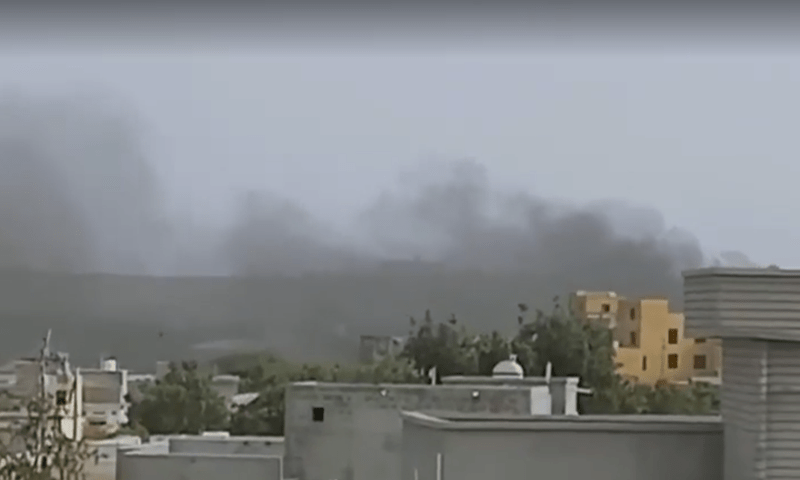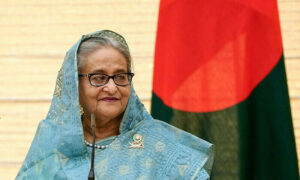Seven armed assailants were shot dead by police and security forces on Wednesday after they forcibly entered the Gwadar Port Authority Complex and opened firing, according to officials.
Makran Commissioner Saeed Ahmed Umrani told Dawn.com that multiple blasts were also reported in the attack.
Gwadar Senior Superintendent of Police Captain (retd) Zohaib Mohsin initially told Dawn.com on the status of the counter-response against the attackers that “eight armed assailants have been successfully gunned down by the police and security forces,” adding that the firing had completely stopped. He later revised his count to seven dead.
A large contingent of police and security forces had reached the scene when the intense firing was ongoing, Umrani earlier told Dawn.com.
A statement from the United Nations Department for Safety and Security said “several explosions followed by continuous firing” were reported during the attack on the complex, adding that the facility hosts several government and paramilitary offices.
The statement added there were no immediate reports of casualties, elaborating that seven personnel from three UN agencies based in Gwadar and two UN agencies on missions were “safe and accounted for”.
No casualties have been reported so far.
The Majeed Brigade of the proscribed Balochistan Liberation Army (BLA) has claimed responsibility for the attack.
The Majeed Brigade, which was formed in 2011, is a particularly lethal guerilla cell of the BLA. It was named after a guard of former prime minister Zulfikar Ali Bhutto who was killed while attempting to assassinate the PPP founder. Its presence in Afghanistan is also well documented and even reported by Indian media.
Some allege that the group also maintains sanctuaries in areas along the Pak-Iran border.
The so-called brigade, which is the suicide squad of the BLA, mostly targets security forces and Chinese interests in Pakistan. It also claimed responsibility for the April 2022 suicide attack outside the Karachi University’s Confucius Institute.
It also carried out a number of attacks in 2022, including those targeting military camps in Balochistan’s Naushki and Panjgur districts, where the militants kept security forces engaged for three days. Twenty terrorists were killed during clearance operations after the Naushki and Panjgur attacks, the military’s media affairs wing had said in a statement, adding that nine security personnel had embraced martyrdom.
The outfit had also claimed responsibility for three coordinated attacks launched using rockets and sophisticated weapons in Balochistan’s Mach town in January, some 70 kilometres from the provincial capital of Quetta. Four security personnel and two civilians embraced martyrdom in the clearance operation.
Pakistan has witnessed an uptick in terror activities in the past year, especially in Khyber Pakhtunkhwa and Balochistan after the banned militant Tehreek-i-Taliban Pakistan ended its ceasefire with the government in November 2022.
In November, 14 Pakistan Army soldiers were martyred after militants attacked two vehicles of security forces in Gwadar. The military vehicles came under attack while moving from Pasni to Ormara in the coastal district.
According to a security report issued by the Centre for Research and Security Studies last month, Pakistan experienced 97 militant attacks in February, resulting in 87 fatalities and 118 injuries.
The report highlighted a significant escalation in violence in Balochistan, juxtaposed with a decline in tribal districts and mainland KP.
‘Message loud and clear’
Balochistan Chief Minister Sarfraz Bugti hailed security and law enforcement officials for their response against the attackers, saying that “the message is loud and clear.”
He added that “whosoever chooses to use violence will see no mercy from the state.”
Punjab Chief Minister Maryam Nawaz, according a press release, also condemned the terrorist attack and congratulated security forces for repelling the attack.
This is a developing story that is being updated as the situation evolves. Initial reports in the media can sometimes be inaccurate. We will strive to ensure timeliness and accuracy by relying on credible sources, such as concerned, qualified authorities and our staff reporters.
Additional reporting by Adnan Sheikh.







